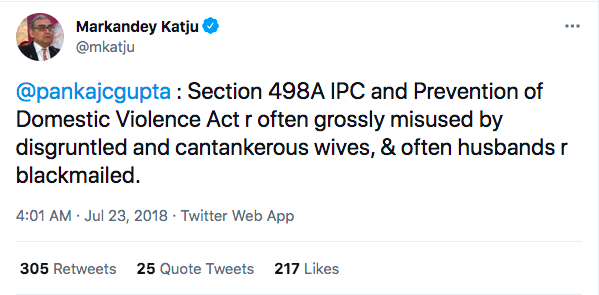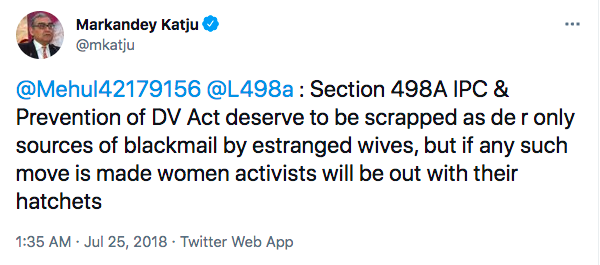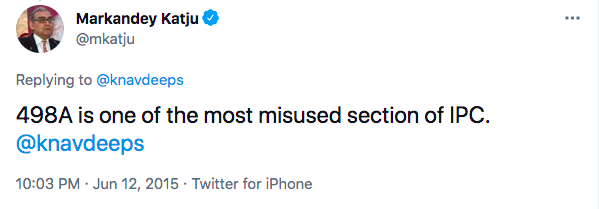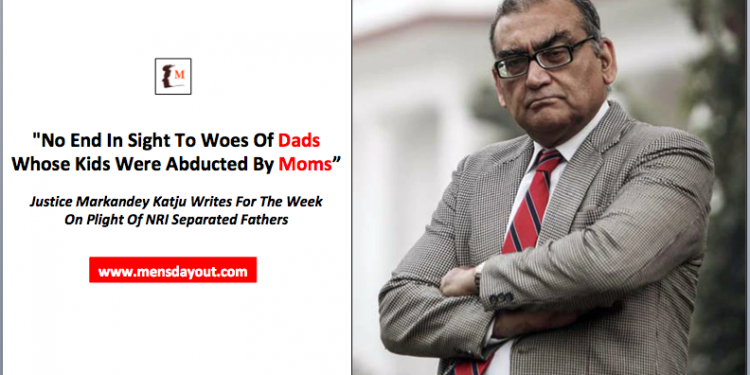We recently celebrated Fathers Day 2021 (on June 20) where social media was flooded with pictures and posts of children wishing their dear parent. A few years ago, wishing Fathers was not really popular, the way we would wish our Moms on Mothers Day.
Nonetheless, the trend is picking up – not merely for ticking the box – but for truly recognising and thanking our Fathers for the love and sacrifices they make. Amidst all the wishes, we also had several posts and messages separated fathers in India, who have been alienated from their children after divorce or while fighting their matrimonial matter at court.
On the eve of Father’s Day in 2018, DNA had published an exclusive report on how several separated fathers were demanding equal right in the process of parenting. Quoting from the DNA report,
Roshan George, a software engineer, had not seen his eight-year-old son for eight months. He then said the law is stilted, and treats divorced fathers like convicts. Even criminals are allowed to see visitors but my rights are curbed.
His son was told that just like a video game, his parents’ marriage was at its ‘game over’ stage. With a lump in his throat, Roshan said, that his son implored him to play the game again and not mess it up this time. He gave up on the custody battle when he saw his son suffering emotionally. He then allowed his wife to take their son abroad for two years, even though he was apprehensive he may not get to see his son even after the period.
Software engineer and entrepreneur Sanjay S (name changed on request) had not seen his children, age 10 and 6, for two years. After fighting a custody case for five years, he gave up as his estranged wife had become caustic, and turned the children against him.
Recently, we came across a very modest article by Markandey Katju, former Judge – Supreme Court of India in The Week. We are republishing the article below, that was titled :
“No end in sight to woes of dads whose kids were abducted by moms: Justice Katju”
When I was in the US some years back, several young men of Indian origin met me and related to me their predicament.
They had migrated to the US several years ago and settled there with good jobs. They had married girls living in India, and brought them to the US and later had children.
Thereafter, either because the wife was unhappy with the marriage, or because she could not adjust to life in the US, or for some other reason, she would one day, without informing her husband, leave for India with the child. This was often done surreptitiously when the husband had gone for work.
Since then she was living in India with their child, and refused to join her husband in the US. Sometimes, the husband was not even allowed to see his child when he went for a short trip to India. Some such husbands applied to a US court which ordered restoration of custody of the children to them, but orders of US courts are not binding in India.
Such young fathers were crestfallen, and some even wept before me since they could not see their children for years. They have formed an association called Bring Our Kids Home, whose office bearers also approached me as they probably thought that being a former Indian Supreme Court justice, I could be of help.
There is a Hague Convention of 1980 for restoration of custody of such abducted children, but India has not signed it, and so it does not apply to India.
Efforts have been made to remedy this situation, but as yet to no avail
Since the children were in India, all that such young fathers could do was to approach the appropriate court in India, which is a district court, for custody. However, as is well known, Indian courts are overburdened, and so take many years to decide cases. Thereafter, there may be an appeal to the High Court, and later even to the Supreme Court, and that too may take several years.
Also, the law in India is that in custody matters, the paramount principle is the welfare of the child, and, especially when the child is of tender age, the courts often think that the child’s welfare requires that he/she should remain with the mother. Even if the father has obtained a decree from a US court that the child should be restored to the father, such a foreign decree is not binding on Indian courts.
The Indian court will of course grant visitation rights to the father, but to what avail will such an order be to a person holding a job in the US? He surely cannot be expected to come all the way from America to India every week, or even once a month, thus risking loss of his job.
In Yashita Sahu vs State of Rajasthan, 2020, no doubt the Indian Supreme Court directed that even if the wife is unwilling to go back to the US, the child had to be sent back to the US.
However, a careful perusal of this judgment shows that it was delivered on the case’s own peculiar facts, and no general principle was laid down that in every case of child abduction, the child must be restored to the father or the country from where he/she was abducted. The court noted that the wife had herself approached a US court when she was living in the US and had entered into an agreement with her husband that every week for some days the child would be with her, and on other days with her husband. She violated this agreement and took away the child to India, even when proceedings were pending in the US court. In the circumstances, the US court ordered restoration of custody to the father.
In para 10 of its judgment in Yashita Sahu’s case, the Indian Supreme Court quoted the earlier observation of the court in Nithya Anand Raghavan vs State “Each case must depend on the totality of the facts and circumstances of the case whilst considering the welfare of the child, which is of paramount importance.” But that decision went on to add “The order of the foreign court must yield to the welfare of the child.”
In Yashita Sahu’s case, the Supreme Court also referred, in para 11, to its earlier decision in Kanika Goel vs State where it was observed “The issue ought not to be decided on the basis of the rights of the parties claiming custody of the minor child, but on the best interest of the child.”
In para 13 of Yashita Sahu’s case, it was also observed “Though the interest of the child is of paramount importance, the court of one jurisdiction should respect the order of a competent court, even if it is beyond its territories.”
In para 16, the court went on to observe “We are of the opinion that the doctrine of comity of courts is a very healthy doctrine. If courts in different jurisdictions do not respect the orders passed by each other, it will lead to contradictory orders being passed in different jurisdictions.”
However, the court added “No hard and fast guidelines can be laid down in this regard, and each case has to be decided on its own facts.”
Thus, from its observations in paragraphs 10 and 16, it is evident that the Indian Supreme Court was not laying down any general principle except that the welfare of the child in such cases is of paramount importance.
The law on the issue is therefore still nebulous, and the predicament of young fathers whose children have been abducted by the mothers is likely to continue.
Justice Katju has been extremely vocal with his views on the misuse of Section 498A of the IPC (dowry harassment) as well. While several Men’s Rights Activists are fighting on ground to bring about a change in Gender Biased Laws in India, we truly hope, influential voices like that of Justice Markandey Katju, can be heard by the present judiciary and the ones in power.
While every separated father hopes to unite with his child at the earliest, the endless wait over the years/decades of court battle, often impacts him adversely. We, at Men’s Day Out, may not be able to assist you legally, however, offer all such fathers a platform to express their plight. Together, we stand strong in this fight of Shared Parenting.



MUST WATCH-
Interview With Father Who Lost His 4-Year-Old Son Whose Sole Custody Was Given To Mother By Court
ALSO READ –
Dear Son, You Would Have Lived Your Life With Single Mom, But Your Father Was Not Evil | Father’s Day 2021
Amidst Divorce Battle, IFS Husband Accuses IPS Wife Of Blocking Access To Minor Son | NCPCR Intervenes
Separated Fathers Urge Smriti Irani To Amend Unfair & Women Biased Laws In Child Custody Cases
Child Custody Cases | Struggle of an NRI Father To See His Daughter During Pandemic Lockdown
Join us on our Telegram, Facebook Group & Koo App
Join our Facebook Group or follow us on social media by clicking on the icons below
If you find value in our work, you may choose to donate to Voice For Men Foundation via Milaap OR via UPI: voiceformenindia@hdfcbank (80G tax exemption applicable)






























